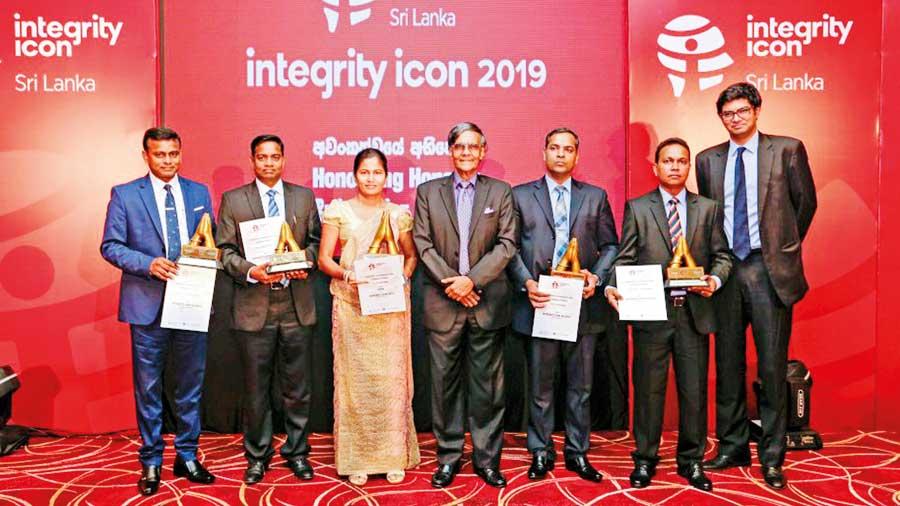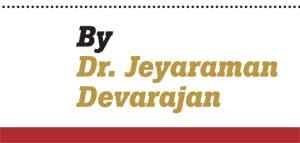Reply To:
Name - Reply Comment

Developing countries are currently experiencing many problems, including climate change, corruption, drug abuse and addiction, and road accidents. We all have to pay great attention to handle these potentially catastrophic problems. Corruption and inefficiencies are the main contributing factors in all these problems. Honest, dedicated government employees are very important in eradicating corruption from a country.
The Corruption Perception Index (CPI) defines corruption as ‘the misuse of public power for private benefit’; this misuse of power includes bribe, nepotism, misuse of assets, embezzlement, and requests for sexual favours from the public or clients in return for providing service. Bribery is one of the most common forms of corruption in Asian countries. There are several factors that contribute to accepting or giving bribes, including the need to maintain standard of living during high inflation, lack of press freedom, attitudes of the public, lack of understanding about ethics or unethical behaviour, organisational culture, poor leadership qualities of management and loopholes in the legal system. 
Corruption can be eliminated through several ways. Primary teachers and parents, especially mothers, can play an important role in eliminating corruption. There is a strong belief that, at a young age, if you train a child in the way he or she should behave and teach them right from wrong, as the child gets older, he/she will not stray away from these principles.
Steien argues that lack of press freedom is an obstacle to revealing corruption. Press freedom is very important in exposing corruption (The Relationship between press freedom and corruption. The perception of Journalism students). Pressfreedom can expose corruption to the outside world, to prompt necessary domestic and international action.
It is not possible to eradicate bribery in a country without the support of the general public, who must learn to say ‘No’ to any form of corruption. In India, a Zero-rupee imitation bank note is used as a means of helping say ‘No’ to bribery. These notes are used by angry citizens for government officials who solicit bribes for a service which is intended to be provided for free (Wikipedia).
Inefficient government processes can also be a cause of corruption. Excessive bureaucracy, rules, paperwork, and procedures can introduce extensive delays in get things done in government departments. This provides an opportunity for government officials to demand bribes, or for the public to offer a bribe to improve the speed and quality of service. By simplifying processes, focusing on pain points and causes of delays, it is possible to increase efficiency and minimise unnecessary delays and corruption. Government officials should abide by a strict ethics code of conduct, that forms part of their key performance indicators.
Religious institutions and religious leaders can encourage the fight against corruption by asking people to say ‘No’. For example, the International Sai Organisation has listed ten principles, one of which is ‘Be an example of honesty. Do not participate in any corruption, such as bribes. Never give or take a bribe’.
Government departments and other organisations must provide training in ethics to employees, and introduce ethical codes for employees. This will help employees to maintain acceptable ethical behavior. Further, through both financial and non-financial incentives it is very important to motivate honest employees, and recognise their ethical behaviour. Indices, bench-marking and other reliable standards can be used to evaluate and compare countries.
Global indexes are used to identify a country’s corruption level – one example is the Corruption Perception Index (CPI) published annually by Transparency International since 1995. This index ranks 180 countries by their perceived levels of public sector corruption, on a scale from 100 to 0, where 100 is very clean and 0 is highly corrupt. In 2018,Denmark, New Zealand, Finland, Singapore, Sweden, Switzerland, Norway, Netherlands, Canada, and Luxembourg scored the top ranks.
In Sri Lanka, the prestigious ‘Integrity Icon’ award plays an important role in eliminating corruption by recognising honest government officers and motivating others to achieve the same standards. ‘‘Integrity Icon’ is a global campaign run by citizens in search of honest government officers. It aims to champion integrity by recognising positive role models, thereby inspiring the next generation of responsible leaders (Integrity Icon Sri Lanka, 2019).
‘Integrity Icon 2019’ was awarded to P.A.C. Priyadarshani (The Principal of St. Mary’s School, Mathugama), A.M.A.S. Amarasinghe (Assistant Superintendent Sri Lanka Customs Central Investigation Bureau), B.K.P. Chandrakeerthi (Director General of the Coast Conservation Department), K. Kunanathan (Divisional Secretary for Verugal, Trincomalee), and Dr. T. Sathiyamoorthy (Director of the Jaffna Teaching Hospital). We can learn many lessons from their success stories.
As a school principal, P.A.C. Priyadarshini, championed merit based enrolment, efficient use of limited resources, introduction of new technology, and improvements to student facilities. A.M.A.S.Amarasinghe (Assistant Superintendent Sri Lanka Customs) achieved the customs department’s objectives by successfully completed many raids, identifies custom department as key revenue earner for the state and is committed to the beliefs that the revenue should be utilized to improve public services. B.K.P. Chandrakeerthi (Director General of the Coast Conservation Department), introduced improving the online approval system, and implementing an online approval system to minimise the human contact between clients and department personnel, thereby eliminating the opportunity to give bribes. K. Kunanathan (Divisional Secretary) was known for taking online applications and approval systems for various services offered by the secretariat,and was swift to take action against corrupted officers. responsibility to improve social welfare and community development projects. Finally, Dr. T. Sathiyamoorthy (Director of the Jaffna Teaching Hospital), earned an excellent reputation for improving the quality of patient care, including managing dereliction of duty in health services, improving quality of service provided to patients and ceasing private consultations by doctors during working hours.
The entire country, especially public servants, should be proud of these individuals’ achievements and learn from their leadership qualities. The individuals that received the ‘Integrity Icon 2019’ can conduct public speeches and seminars at different levels to share their experiences and challenges in maintaining integrity.
This is particularly important at education institutions, such as school and universities, so that the next generation maintain awareness of current issues and can make progress in resolving these issues and reducing corruption.
A government servant must overcome many challenges and barriers, in order to maintain exemplary integrity in their work. ‘Integrity Icon 2019’ encourages us to think about these challenges within the public sector, including corruption. These small guidelines can create changes, refine our attitudes towards corruption, and ensure that all of us act with the highest standard of integrity.
Author is a former senior lecturer in the department of Management
University of Jaffna.